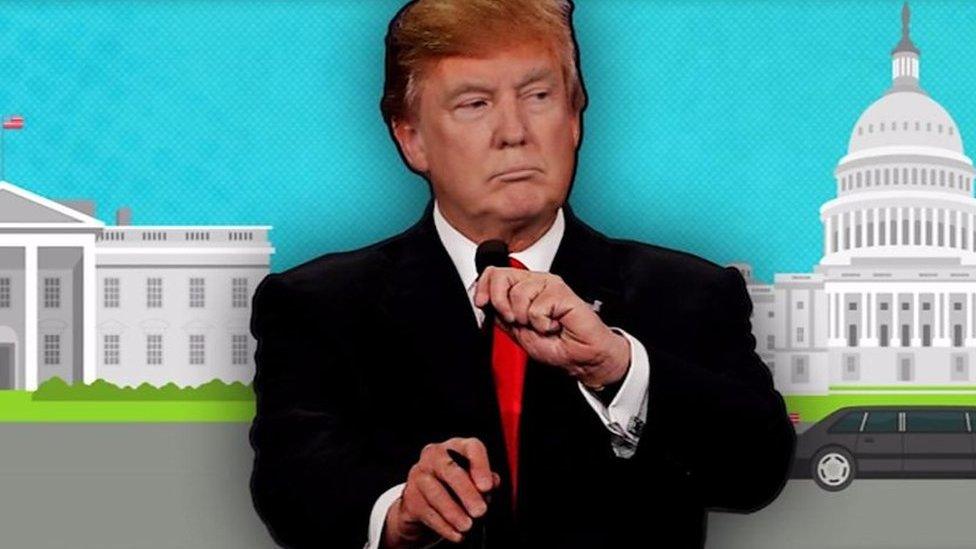Donald Trump impeached for historic second time after US Capitol riot
- Published
- comments
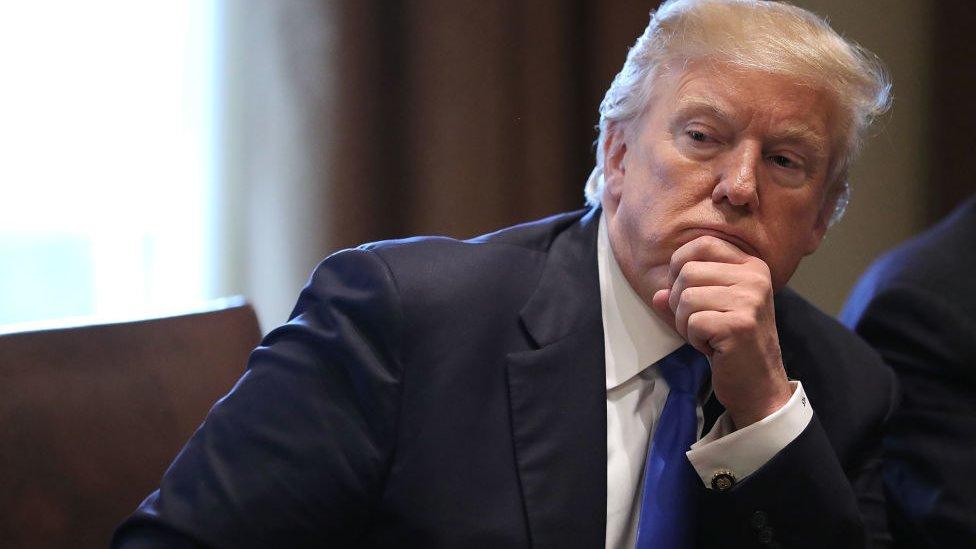
President Donald Trump has become the first president in US history to be impeached twice.
Only three US presidents have ever been impeached, and one of them is Donald Trump.
It's after lots of criticism of his behaviour in trying to undermine the fairness of the recent election, which he lost, and his role in last week's violent protests at the US Capitol.
The US House of Representatives - one half of the US Congress that creates and passes laws - voted on Wednesday to impeach Mr Trump, a Republican, for "incitement of insurrection".
But his trial in the Senate will not happen until after Joe Biden, a Democrat, takes over as the new US president on 20 January.
What did US politicians say?
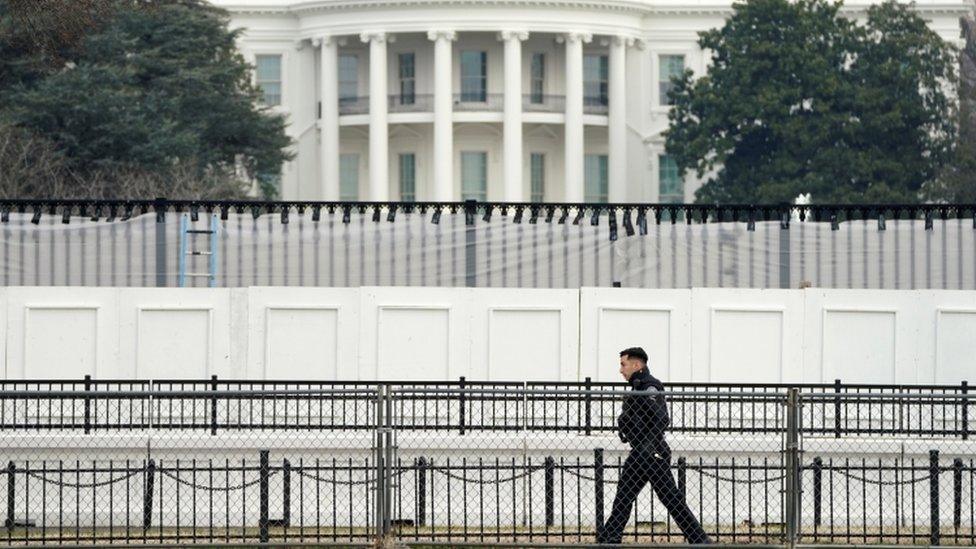
The storming of the Capitol building has put senior politicians on edge during the final days of Mr Trump's presidency
During the debate, the House Speaker Nancy Pelosi, the most senior person in the Democrat party, said: "The president of the United States incited this insurrection, this armed rebellion against our common country. He must go. He is a clear and present danger to the nation that we all love."
"Impeaching the president in such a short time frame would be a mistake," said Kevin McCarthy, the House's top Republican. "That doesn't mean the president's free from fault. The president bears responsibility for Wednesday's attack on Congress by mob rioters."
Some of Donald Trumps Republican party still supported him. Jim Jordan accused Democrats of dividing the country just to make a political point. "This is about getting the president of the United States. It's always been about getting the president, no matter what. It's an obsession."
Among members of the president's party who voted to impeach him was the third-ranking House Republican, Liz Cheney, the daughter of a former Vice-President - she said "there has never been a greater betrayal by a president".
What did Mr Trump say?
WATCH: Trump - 'Violence and vandalism have no place in our country'
In a video released after the vote, Mr Trump called on his followers to remain peaceful, without mentioning his impeachment.
"Violence and vandalism have no place in our country... No true supporter of mine would ever endorse political violence," he said.
Hundreds of US National Guard troops have been deployed to protect the Capitol building in Washington DC since last week's riot - with many of them seen sleeping on the floor there.
There have been concerns that there could be more violence in the run up to president-elect Joe Biden's inauguration.
What is impeachment?
WATCH: The moment President Trump was impeached for second time
Impeachment proceedings are usually a pretty rare event in the US and are a final check on the president's power.
The United States Congress - the part of the US government that writes and brings in laws - can put the president on trial for a number of offences including "treason, bribery or other high crimes and misdemeanours".
For a president to be removed, he or she needs to be impeached by half the politicians in the House of Representatives (currently controlled by Joe Biden's party) and then found guilty by two-thirds of those in the Senate (controlled by Donald Trump's party until 20 January).
But impeachment by the House of Representatives does not automatically mean that a president will be removed from the job and until now, no US president has been removed from office as a result of impeachment.
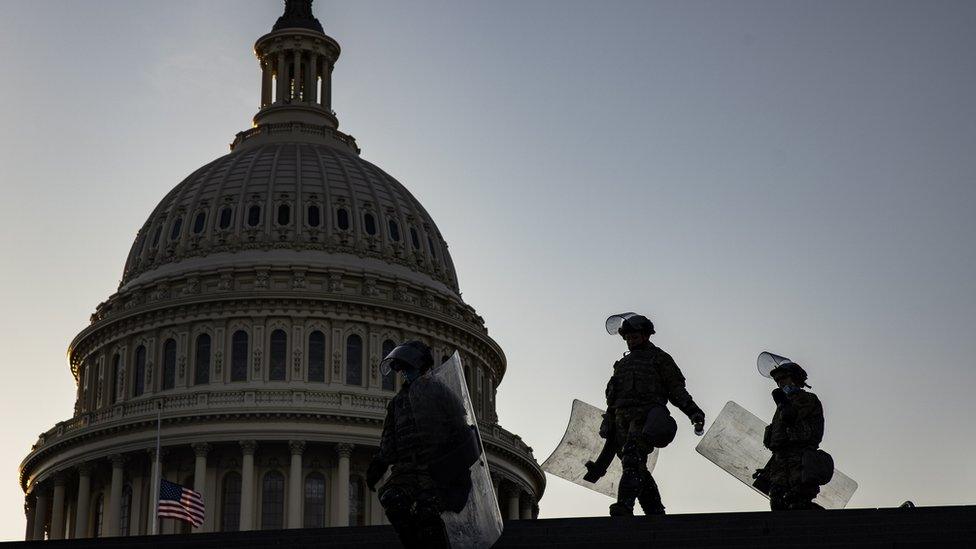
National Guard soldiers with riot shields have been deployed to secure the grounds around the US Capitol building in Washington, DC
This isn't the first time President Trump has been impeached.
Donald Trump was impeached in 2020 over claims he abused his power to ask a foreign government to investigate the family of Joe Biden, but when it came to the Senate trial, he easily won the support of the politicians in his party and stayed in power.
If Mr Trump loses this time, he could be stopped from running for president again at the next election in 2024.
What was Trump charged with?
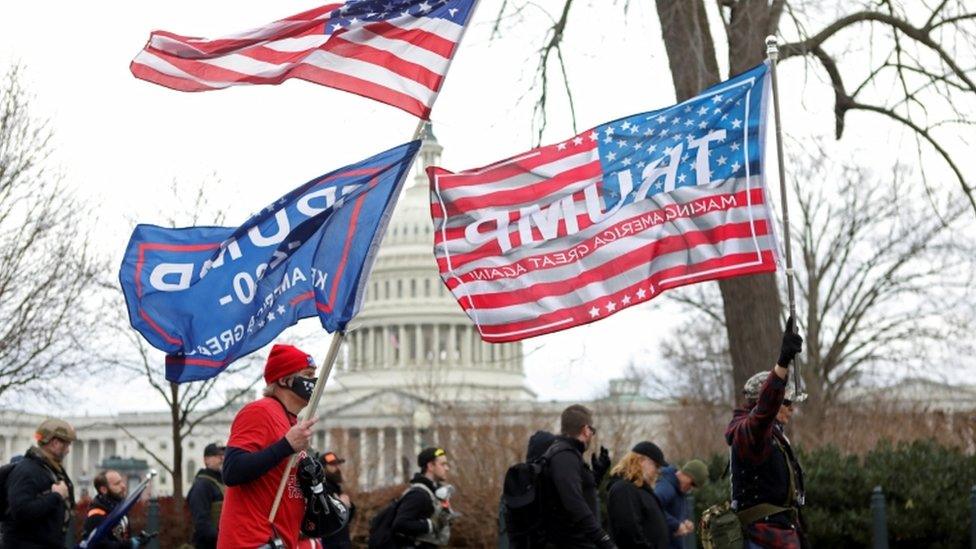
Many of President Trump's supporters have continued to protest against the election result
Impeachment charges are political, not criminal.
The president was accused by Congress of "incitement of insurrection" - this means encouraging a revolt against authority or an established government - and claims that Trump actively encouraged violence by protesters.
He urged his supporters in a speech on 6 January to "peacefully and patriotically" make their voices heard, but also to "fight like hell" against an election that he falsely told them had been stolen.
Following Mr Trump's comments, his supporters broke into the US Capitol building where five people died in the violent riot.
Donald John Trump engaged in high Crimes and Misdemeanours by wilfully inciting violence against the Government of the United States.
House Speaker Nancy Pelosi, a senior Democrat politician, said: "The president of the United States incited this insurrection, this armed rebellion against our common country.
"He must go. He is a clear and present danger to the nation that we all love."
Most Republicans, who belong to the same party as Mr Trump, did not defend the president's speech. Instead, they argued that the impeachment process had been forced through too quickly and called on Democrats to drop it for the sake of national unity.
What happens next?
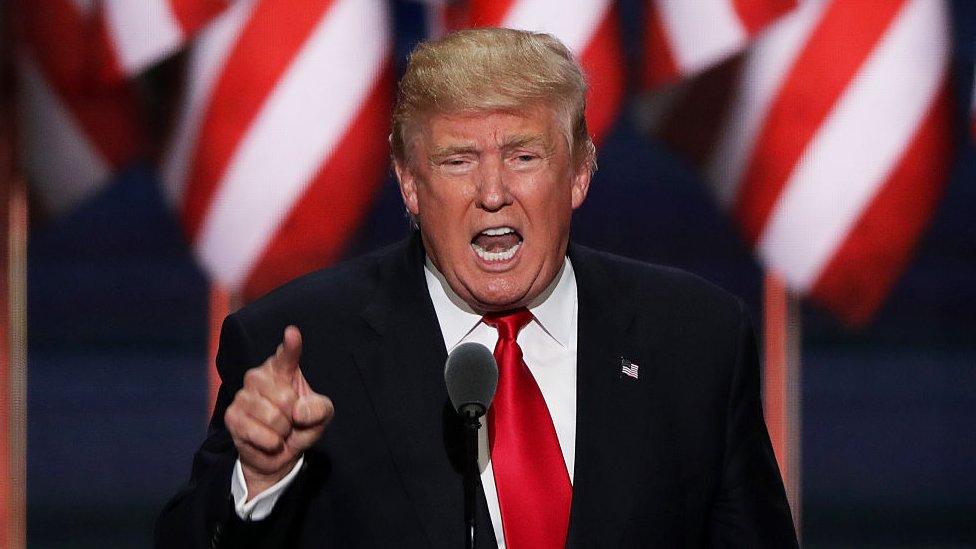
The impeachment process will now head to the Senate, which will hold a trial to decide out if the president's guilty of the charges or not.
A two-thirds majority - this means at least 67 people out of 100 in the Senate - is needed to convict Mr Trump.
If Mr Trump is convicted by the Senate, lawmakers could hold another vote to block him from running for elected office again.
But the trial will not come during Mr Trump's remaining week in office.
- Published21 January 2020
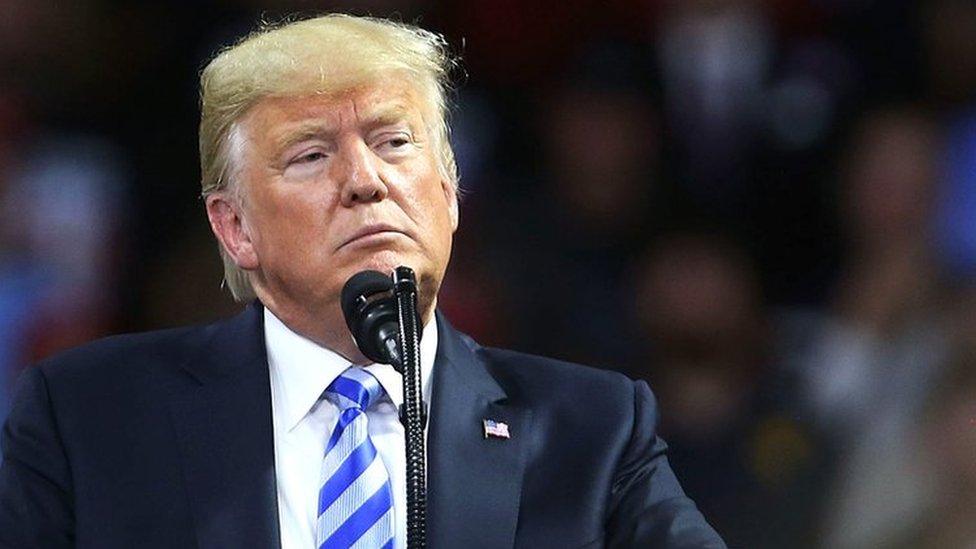
- Published13 January 2021
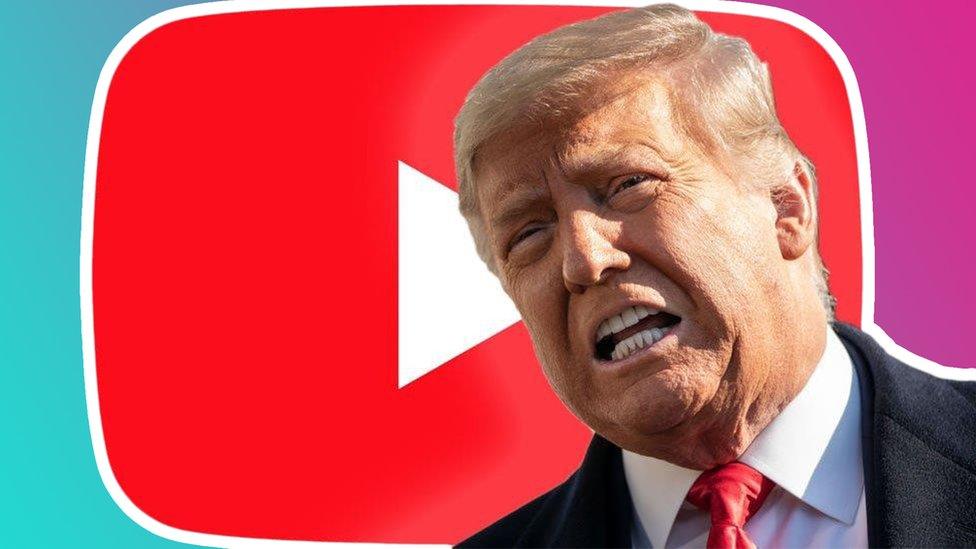
- Published8 June 2020

- Published23 January 2021

- Published16 December 2020
